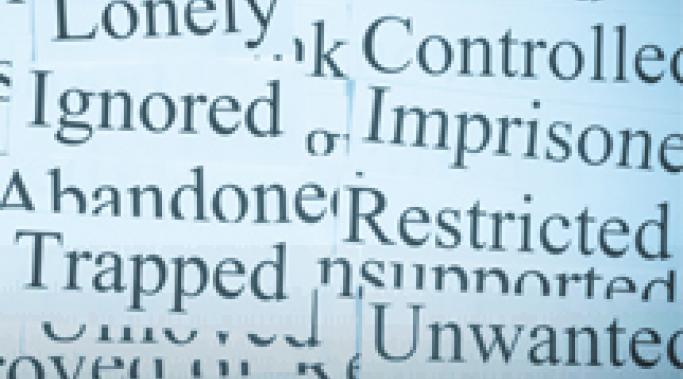Blogs
There are many things that can trigger my posttraumatic stress disorder (PTSD). Over the years, I have learned to adapt pretty well to living with posttraumatic stress disorder. But certain situations or settings can trigger, which means to cause an onset of, the anxiety of my PTSD, taking me back to a time when I wasn’t safe and my life was in danger. I will become hypervigilant, begin to dissociate, and feel extreme anxiety. I’ve learned to watch for those situations, and to find effective coping mechanisms that reduce my anxiety when my PTSD gets triggered.
One thing that constantly frustrates mental health professionals who deal with domestic violence is why people stay. As a domestic violence survivor, I have some insight into why people stay in domestic violence situations. There are three major religious reasons why people in a domestic violence situation stay: the belief that marriage must be preserved, the belief that men are supposed to be dominant and women are supposed to be submissive, and the belief that women are basically evil.
Despite its health risks, hookah smoking is growing in popularity across the United States and many other countries (Treatment For Nicotine Addiction). Hookah smokers, and the general public, often believe that the practice is virtually harmless, but both the Center for Disease Control (CDC) and the Mayo Clinic state that hookah smoking has several health risks and is not safer than cigarette smoking.
A posttraumatic stress disorder (PTSD) recovery program often requires a network of supporters for the PTSD sufferer that includes loved ones, friends, doctors and even coworkers. This is because posttraumatic stress disorder doesn't only affect those who are diagnosed with it. Usually, many people play a part in the sufferer's PTSD recovery program. Sometimes it's hard to know how to handle it when someone with PTSD is triggered, anxious, or depressed -- what to say or do to make the situations better. These are muddy waters to navigate, but it can be done. You are able to help someone through their PTSD recovery program.
You can find binge eating disorder symptoms in your closet, too. Binge eating disorder (BED) can impact your weight, and by extension, the size and shape of your body. When your body changes shape you need new clothes. Whether losing or gaining weight, your closet might end up a mismatch of clothing. So, when you have BED, you might have a troubled relationship with your closet because your binge eating disorder symptoms live there, too.
People with bipolar have a hard time planning ahead. I know it seems like it would be easy: “Want to go to lunch Tuesday?” “Sounds like fun. Sure!” but it isn’t (How To Be Bipolar And High Functioning). And the reason is because bipolar disorder is highly unpredictable. Yes, I might feel fine right now but I literally have no idea what tomorrow will bring (Using Bipolar As An Excuse). This is why planning ahead with bipolar is really tough.
Mental illness stigma and Halloween go together like hand and glove--we've all seen the "haunted asylums" and the "mental patient" costumes. Rather than trying to censor this mental illness stigmatization at Halloween, we should use it as a teachable moment. We should educate people that psychiatric patients are no more violent than the general population and that we're more likely to be the victims of violent crime than the perpetrators. While there is mental illness stigma around Halloween, we can use it to educate others.
A family-related mental health relapse becomes more possible in the days approaching Halloween and the winter holiday season. You see, for those of us with mental illness, these holidays may be filled with dread rather than joy and anticipation. Likely, some of our issues with coping emanate from family situations, and we may experience triggers that can cause a mental health relapse when around our family. Many emotions can cause mental health relapse, particularly when experienced during a holiday period full of expectations and various personalities (Anatomy Of A Mental Health Relapse).
Don't be fooled: peer support can help break mental health stigma. People often think of treatment as going to sit in some office on one of those couches and spilling out their souls, or attending meetings like Alcoholics Anonymous and having to announce who they are and what their problem is. Treatment doesn’t have to be either of these things. What I’ve discovered is that peer support groups can break mental health stigma and be just as healing.
I've been reading the Debunking Addiction blog lately, and it's gotten me thinking about how my early sobriety triggered my anxiety. Early sobriety generally refers to the first year of not drinking after sobering up. My experience has been that early sobriety will trigger anxiety, especially if you already have an anxiety disorder, which I believe many problem drinkers do (Addiction and Mental Illness: The Struggle to Stay Sober and Sane).









